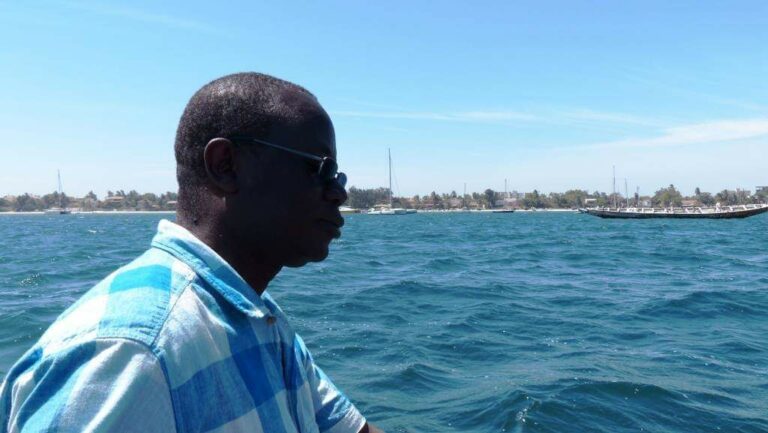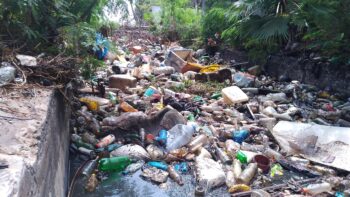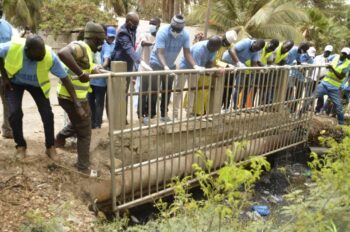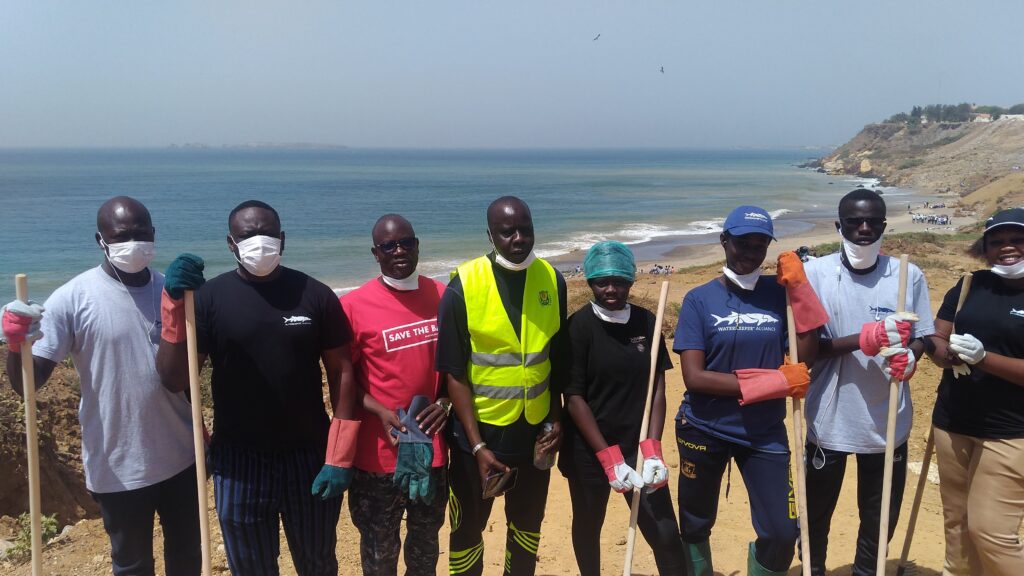Who Is Waterkeeper: Mbacke Seck, Hann Baykeeper
By: Thomas Hynes

Mbacke Seck was a student in 1998 when he and some fellow students noticed a disturbing development at their local beach in Hann Bay in Senegal. The area had become a mess. Garbage, plastics, and more were all over the sand and in the water.
“If you went swimming, you would cut your legs on bottles, metals, and other things. When you got out of the water, oil remained on your skin. It smelled terrible,” says Mbacke. “The beach was not a beach. It was a rubbish dump.”
So Mbacke and his friends began to clean the beach. In the beginning, they weren’t taken seriously. Some locals thought it was a joke, as if the young people didn’t have jobs. But, soon, improvements began to show. They started with a 200 meter stretch of beach that had been dirty and black. Eventually, the sand began to reveal its original white color. The modest transformation caught the attention of the community.

Mbacke wanted to do more, however. After speaking with a Senegalese man living in Canada, he decided to join Waterkeeper Alliance in 2006 and create Hann Baykeeper. He’s learned about media relations, fundraising, fossil fuels and sea level rise, even how to sue a politician. Being a part of Waterkeeper Alliance has also helped solidify his reputation locally in Senegal. Mbacke is a regular fixture in local newspapers and on local television, where he advocates tirelessly for the bay.
“We know that we clean our beach in our village, but if our neighbors don’t, it won’t matter,” says Mbacke. “So we go around the bay and encourage our neighbors to do the same. We talk to the people. They usually have seen us on TV talking about Hann Bay so that when we come to the neighboring village, they already know us.”
Despite his near celebrity status, the bay still faces many challenges. Polluted water from Dakar’s homes and factories still makes its way directly into the waters of Hann Bay. Green algal blooms overwhelm the bay several times a year. There’s also no real solution yet for trash management, so most rubbish still ends up in Hann Bay.
“My dream is for my four daughters and two boys to swim in Hann Bay… I want the fishermen who live in Hann Bay to be able to fish again.
But there has also been a lot of progress. Hann Baykeeeper successfully advocated the Senegalese government, with assistance from the European Union, to undertake a massive $130 million cleanup project that includes 17 local towns and cities. A treatment plant is being enlarged to have its capacity quadrupled to handle 100,000 metric gallons. Once completed, it will be the largest clean water project in all of Senegal, and will impact nearly half a million Senegalese citizens. A road widening project near the beach allowed for garbage trucks to more effectively do trash pickups.

Another very significant project took place in 2012 when a water channel was equipped with a mechanism to capture trash within it before it reached the bay. Mbacke and Hann Baykeeper fundraised the $15,000 needed to make the device. Before this, the trash was so prevalent that one could walk across it like a bridge. However, once the device was installed, it was the first time plastic waste didn’t reach the bay after a rainstorm in over 60 years.
Some suggested that Mbacke had no right to do this kind of work. But he insists that the Constitution gives him a right to a clean beach. Though, ultimately, his motivations are more personal than they are legal.
“My dream is for my four daughters and two boys to swim in Hann Bay. They currently don’t swim because it’s very dirty and it smells bad,” says Mbacke. “I want the fishermen who live in Hann Bay to be able to fish again. We hope tomorrow that everyone comes to swim in Hann Bay.”

Though there are many challenges, Mbacke and Hann Baykeeper continue this important work. Their beach cleanups, which were once just a group of students, now attract hundreds of volunteers, including ministers of government. For those who don’t make the cleanups in person, they can hear Mbacke on the radio, read about him in the newspaper, or see him on television about the need to take care of Hann Bay, as well as all of Senegal’s waterways and hundreds of miles of shoreline.
“Originally, people thought we had time to waste, or no job,” says Mbacke. “Ten years later, they know it’s not a joke. We have done this the right way.”